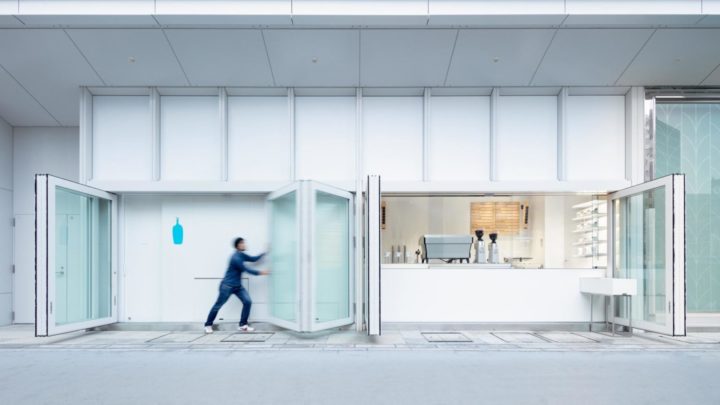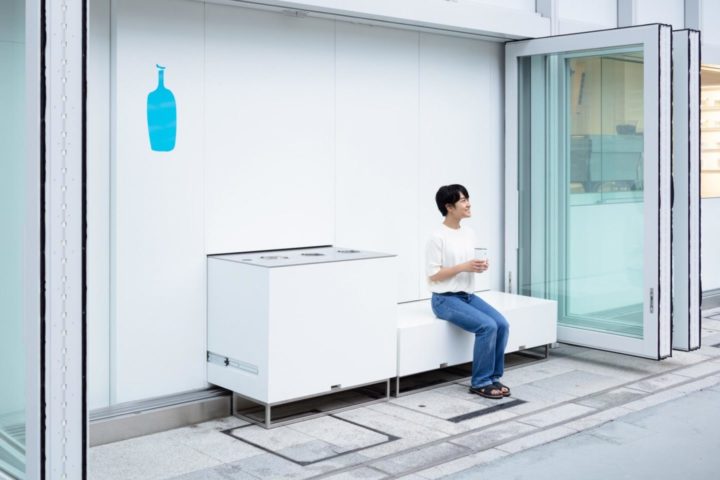A multisensory coffee for the tea ceremony
Taking over the ground and first floors of a modern low-rise in Osaka, Tokyo-based studio I IN has created a coffee shop that is futuristic,…
In addition to their architectural interest, dynamic facades have many advantages. They can minimize energy consumption, maximize air circulation, create privacy or expand space. Their flexibility and visual enticement make them key elements for the design of points of sale. Here are four examples:
The facade of the hair salon Créde Hair, in Inokuchi, Japan, is a set of modular vertical panels forged from galvanized iron installed beneath a skeleton wood frame. Architects from the Japanese agency Fathom designed this dynamic façade which can be configured in four different positions, so that the client can change the level of privacy as they wish within the interior. When fully open, the façade reveals a space especially developed for children to play while their parents get their hair cut.
Architectes : Fathom
Photos : Tatsuya Tabii
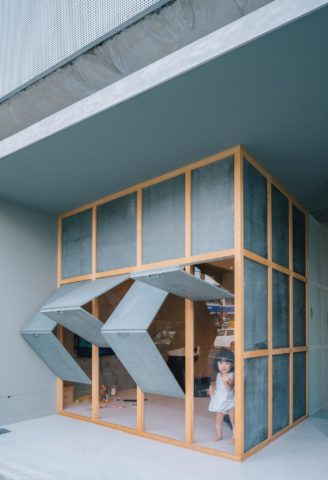
Italian marble maker Marsotto called on architects from the Nendo agency to create its showroom for furniture and material samples in Milan’s Brera district. Naturally, marble was the select material for this project, including the facade. In fact, the marble new facade fits perfectly into the existing exterior with the same layout and aligned joints. Visitors when entering the showroom can only be intrigued because the door, once closed, is hidden. The designers anticipated the installation of a small park in front of the store, by turning part of the facade into “impromptu street furniture”.
Architectes : Nendo
Photos : Hiroki Tagma
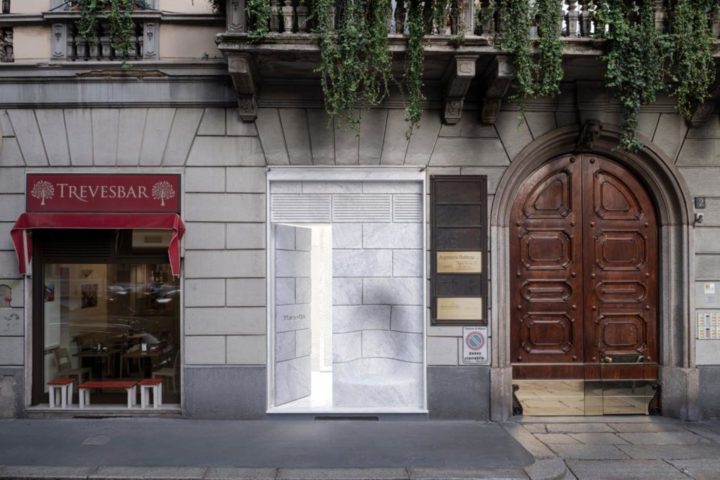
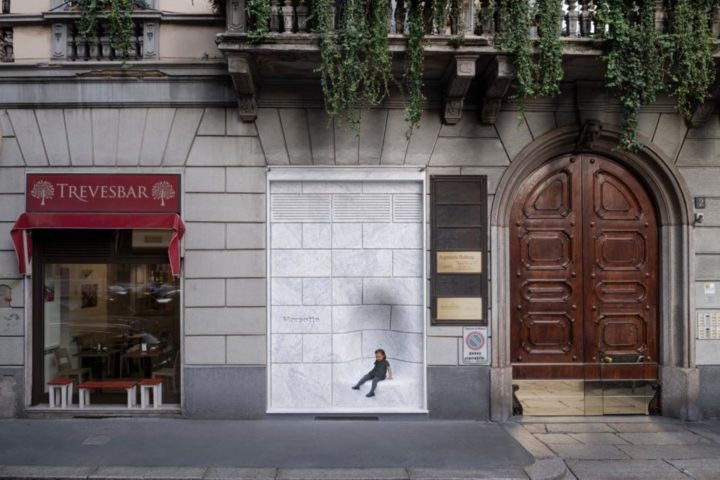
Visitors to Basdban, a renowned coffee shop in Shanghai, will be seduced by its dynamic entrance, which expresses the brand personality while respecting the architectural heritage of the building. A 12-meter-long stainless-steel sliding door is skillfully incorporated with a historical exterior. When slid aside, the door reveals contemporary doors and windows. Inside the shop, the presence of foldable panels enables an 8-meter-long floating bar counter to be stretched outwards. When the sliding door is shut, it hides these new openings with the existing red brick wall.
Architectes : Dongqi Architects
Photos : Raitt Liu
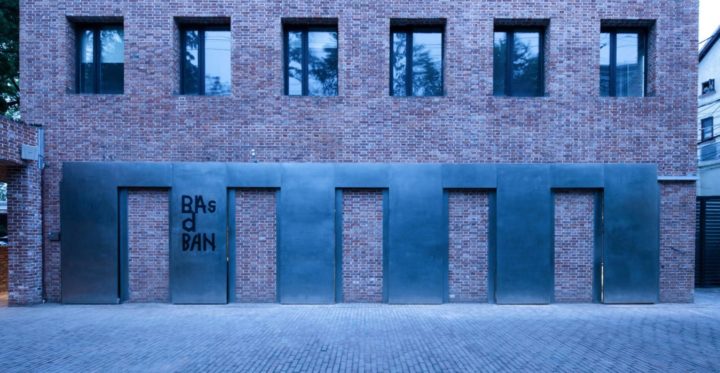
Architects from the Shemata agency have created a 25-meter-long takeaway-only stand for Blue Bottle Coffee, located outside the NEWoMan Mall in Yokohama, Japan. The folding glass doors enclose the barista area and, when opened outward to the fullest, create corners for customers to wait or drink their coffee. Furniture such as sideboard, display table and bench are kept stored under the stand’s counter and can easily be pulled out for use during the day.
Architect : Shemata Architects
Photos : Takumi Ota
